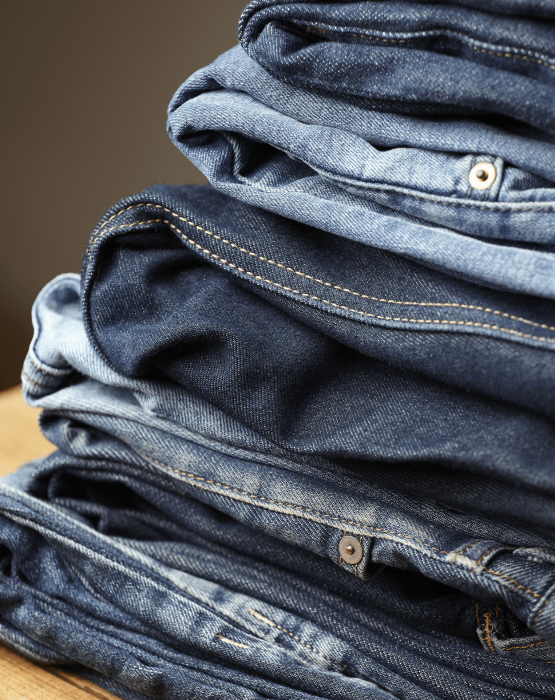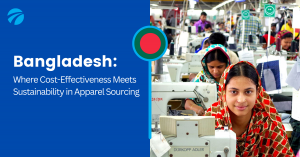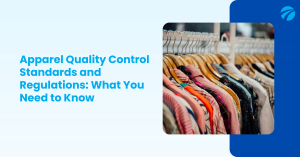Textiles And Garments Inspection - Garment Quality Control Expertise
GARMENT INSPECTION EXPERTISE
Textiles and Garments Inspection – Garment Quality Control
Effective Textiles and Garments Inspection goes beyond a surface-level check. It involves a systematic evaluation of textiles, fabrics, garments, and their components to ensure they meet stringent quality standards.
At Tetra Inspection Inspection Services, we are a trusted leader in textile and garment inspection, staffed with experienced professionals well-versed in textile quality control standards. Our comprehensive inspection process utilizes advanced tools and techniques to assess various factors, including fabric quality, stitching precision, compliance with industry regulations, and more.
Ensure the highest standards of quality, safety, and compliance for your textile and garment products by booking a comprehensive inspection with us today.
GARMENT QUALITY CONTROL
Importance Of Textiles And Garments Inspection
Textiles and garments inspection is a critical aspect of quality control in the fashion and textile industry. It plays a pivotal role in verifying that textile and apparel products meet the necessary standards for durability, safety, comfort, and visual appeal. A thorough inspection ensures that consumers receive high-quality and reliable products while also helping manufacturers maintain a positive brand reputation.
Here are five key aspects to consider during a textiles and garments inspection:
Fabric Quality Assessment: Inspectors evaluate the quality of textile materials, checking for defects, flaws, and consistency in weave or knit. Ensuring the fabric meets specified standards for strength, texture, and color is essential for garment performance and customer satisfaction.
Stitching and Seam Inspection: The strength and precision of stitching and seams are crucial for the longevity of garments. Inspectors assess the stitching quality, seam alignment, and seam strength to prevent unraveling or tearing during use.
Color Fastness and Dye Testing: Color consistency is vital in textiles and garments. Inspections include testing colorfastness to washing, rubbing, and exposure to light to ensure the colors remain vibrant and do not fade quickly.
Sizing and Fit Verification: Garment sizing and fit should align with industry standards and customer expectations. Inspectors verify measurements and dimensions to ensure that garments fit correctly and comfortably.
Compliance with Regulatory Standards: Textiles and garments must meet regulatory standards for safety, labeling, and environmental impact. Inspections confirm compliance with these standards to prevent potential legal and safety issues.
Types Of Textiles And Garment Products We Inspect
At Tetra Inspection Services, we understand that the fashion and textile industry encompasses a wide range of products, each with its unique characteristics and quality requirements. We offer inspection services for various textile and garment products, including:
Denim Inspection:
Fabric Inspection: We assess denim fabric quality for factors such as weave consistency, colorfastness, and fabric strength. Denim products often require specific finishes, and we ensure these meet the desired appearance and durability standards.
Stitching and Seam Inspection: Denim garments are known for their sturdy stitching. Our inspectors thoroughly examine stitching quality, ensuring it can withstand the rugged nature of denim.
Sizing and Fit Verification: Proper fit is crucial for denim products. We verify measurements and dimensions to ensure jeans and other denim items fit comfortably and accurately according to specified sizes.
Jacket Inspection:
Fabric Quality Assessment: Jackets can be made from diverse materials, including leather, synthetic fabrics, and blends. We examine fabric quality, whether it’s the softness of leather or the durability of synthetic materials.
Stitching and Seam Inspection: Jackets often have multiple seams and decorative stitching. We ensure the stitching is precise, sturdy, and aesthetically pleasing.
Functionality Testing: Zippers, buttons, and closures on jackets must function flawlessly. Our inspectors conduct functionality tests to ensure these components work smoothly.
Dress Inspection:
Fabric Quality Assessment: Dresses come in various fabrics, each with its specific requirements. We evaluate fabric quality based on the type of dress, considering factors such as texture, drape, and color consistency.
Stitching and Seam Inspection: Dresses often feature intricate stitching and seams. Our inspectors assess both the aesthetic and structural aspects of stitching to ensure dresses maintain their elegance and integrity.
Labeling and Compliance: Dresses may have unique care instructions and labeling requirements. We confirm that labels accurately represent the dress’s fabric content and care guidelines.
Leather Accessories and Bags Inspection:
Leather Quality Assessment: For leather accessories and bags, the quality of the leather is paramount. We scrutinize leather for texture, finish, and color consistency.
Hardware Inspection: Accessories and bags often feature metal or plastic hardware elements such as buckles, zippers, and clasps. We inspect these components for durability, finish, and functionality.
Labeling and Compliance: Labels on leather accessories and bags provide important information about materials and care. We ensure labels are correctly placed and contain accurate information.
Key Elements Of Textiles And Garments Inspection
When it comes to ensuring the impeccable quality, safety, and compliance of your textile and apparel products, nothing beats a thorough inspection. At the heart of this meticulous process lie several key elements that guarantee your garments are not only visually stunning but also compliant and safe to wear.
Fabric Inspection:
During a fabric inspection, our inspectors delve deep into the essence of your textile materials, meticulously examining them for:
Fabric Strength: We leave no thread unturned, rigorously testing the tensile strength and tear resistance of your fabrics to guarantee they can withstand the rigors of daily wear.
Color Consistency: We understand the importance of uniformity. That’s why we meticulously inspect fabrics to ensure that colors harmonize seamlessly both within the fabric itself and across the entire garment.
Weave or Knit Quality: The very structure of your fabric matters. We assess the weave or knit for uniformity and integrity, ensuring that every inch meets the highest standards of craftsmanship.
Sizing and Fit Verification:
Our commitment to perfection extends to the fit and sizing of your garments. We inspect for:
Measurement Accuracy: Your garment’s measurements are meticulously checked to ensure they align precisely with the specified sizes, leaving no room for guesswork.
Fit Assessment: Comfort and style go hand in hand. We ensure your garments fit like a glove, just as you envisioned.
Color Fastness Testing:
Colors that stand the test of time are colors worth having. Our rigorous colorfastness testing includes:
Washing Tests: We evaluate how well your colors hold up after countless cycles in the washing machine, ensuring they remain vibrant and fade-resistant.
Rubbing Tests: We determine your fabric’s resistance to color transfer from friction, making sure your garments stay pristine even during the busiest of days.
Lightfastness Tests: Exposed to the brightest of lights, we measure resistance to fading, guaranteeing your colors remain as brilliant as the day they were created.
Labeling and Compliance:
We don’t just inspect your garments; we confirm that they meet the highest standards of labeling and compliance, including:
Label Accuracy: Your labels accurately represent every facet of your product, from care instructions to fiber content, leaving no room for ambiguity.
Safety Standards: Compliance with safety regulations and standards is our top priority, ensuring your products are not just stylish but also safe to wear.
Packaging and Labeling Review:
First impressions matter. Our inspectors make sure your products make a stellar entrance with:
Proper Folding and Packing: Garments are expertly folded and packaged to preserve their pristine condition, free from wrinkles or damage.
Label Placement: Labels are meticulously positioned on garments, showcasing your brand’s attention to detail.
Compliance with Standards and Regulations: Throughout the inspection process, we rigorously check your textiles and garments against relevant quality standards, safety regulations, and environmental requirements, ensuring your products are not just exceptional but also ethically produced.
Functionality Testing: Every feature matters. Our inspectors may conduct functional tests to guarantee that zippers, buttons, or closures work flawlessly, adding that final touch of perfection to your products.
Quality standards for textile and garments
The Textiles And Garments Quality Control Process
The textiles and garments quality control process is essential to maintain the quality, safety, and performance of textile and apparel products.
It encompasses various stages, from pre-production assessments to final random inspections. Let’s explore the different phases of the textiles and garments quality control process:

During a pre-production inspection, our inspectors collaborate with manufacturers to review design specifications, materials, and production processes. This phase includes:
Component Verification: Examining and verifying the quality of individual components such as fabrics, zippers, buttons, and labels.
Design Specification Review: Scrutinizing design specifications to ensure they adhere to quality and safety standards.
Factory Capabilities Evaluation: Assessing the manufacturing facility’s capacity and capabilities to meet production demands while maintaining product quality.
During the production process, in-line inspections occur at various stages to detect and address potential issues in real time. This phase includes:
Workmanship Quality Assessment: Monitoring the assembly, stitching, and construction of garments to identify workmanship defects or deviations from approved designs.
Defect Detection: Identifying and rectifying any defects, irregularities, or deviations from quality standards that may arise during production.
Implementing Corrective Measures: Collaborating with manufacturers to promptly implement corrective actions, preventing the production of substandard textiles and garments.
Pre-shipment inspection takes place once the production of textile and garment products is complete, and a batch of products is ready for shipment. This phase includes:
Random Sampling: Inspectors randomly select samples from the batch and subject them to a comprehensive examination to ensure they meet the specified quality benchmarks and comply with safety regulations.
Functionality Testing: Testing the functionality of garment features such as zippers, buttons, and closures to ensure they perform as intended.
Packaging and Loading Oversight: Supervising the packaging process to verify that textiles and garments are adequately protected for transportation and ensuring proper loading onto shipping containers to prevent damage during transit.
QUALITY STANDARDS FOR TEXTILE AND GARMENT
Applicable Standards For Textile And Garment Quality Control
Textile and garment quality control involves adherence to established standards and regulations to guarantee that textile and garment products are safe, durable, and meet performance expectations. Several national and international standards govern textile quality control, addressing factors such as fabric quality, safety, labeling, and environmental impact. Here are some key standards relevant to textile quality control:
AATCC standards: AATCC develops and publishes standards related to textiles, colorfastness, and physical properties. Standards like AATCC 61 address colorfastness to laundering, and AATCC 135 focuses on fabric appearance after home laundering.
International Organization for Standardization (ISO) standards: ISO has established numerous standards applicable to textiles and garments. ISO 105 addresses colorfastness testing, while ISO 6330 provides guidelines for home laundering procedures. ISO 3758 outlines care labeling codes for textile products.
Consumer Product Safety Commission (CPSC) regulations: The CPSC sets regulations for flammability and safety standards for various textile products, including children’s sleepwear.
OEKO-TEX Standard 100: This certification system evaluates textiles for harmful substances, ensuring they meet strict human-ecological requirements. It assesses substances such as heavy metals, harmful dyes, and pesticides.
Textile Fiber Products Identification Act (TFPIA): In the United States, TFPIA requires accurate labeling of textile fiber content to inform consumers about the materials used in textile products.
European Union’s REACH regulations: REACH (Registration, Evaluation, Authorization, and Restriction of Chemicals) addresses the use of chemicals in textiles and apparel products, aiming to protect human health and the environment.
ASTM International standards: ASTM develops standards related to textiles, including testing methods for properties such as tear strength, seam slippage, and fabric thickness.
Adherence to these standards ensures that textile and garment products are safe, durable, and compliant with regulatory requirements, providing consumers with confidence in the quality and safety of their clothing purchases.

How Tetra Inspection Inspection Services Can Help With Textiles And Garments Inspection
Thorough Inspections
Tetra Inspection Inspection Services specializes in conducting meticulous Pre-production Inspection, During production, and Pre-shipment inspections for textile and garment products. Our rigorous approach ensures that no compromised products go unnoticed, upholding the highest standards of quality.
Personalized Solutions
Recognizing that each company has distinct quality criteria, Tetra Inspection Inspection Services provides customizable inspection solutions that align with your precise requirements. Whether you deal with a diverse range of fabrics, intricate designs, or complex production processes, our services can be adapted to meet your expectations.
Experienced Inspectors
Our team of inspectors possesses in-depth expertise and experience in textile quality control. Their acute attention to detail guarantees a thorough evaluation of every aspect of your textile and garment products, from fabric quality to stitching precision
Prompt Reporting (24 Hours)
Count on Tetra Inspection Inspection Services to deliver punctual and comprehensive inspection reports within 24 hours.
Schedule Your Textile And Garment Inspection Today
Count on our team of seasoned experts to conduct meticulous textile and garment inspection, minimizing risks, and ensuring strict compliance with international standards.
BLOG
Related Articles
shipment, minimizing risks and ensuring compliance with international standards.





